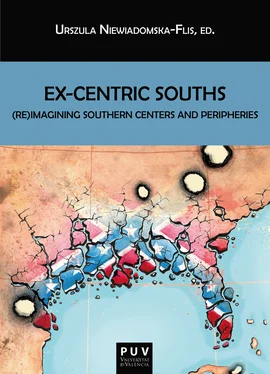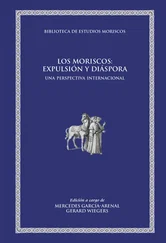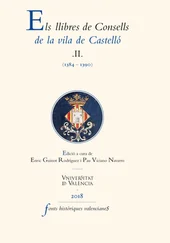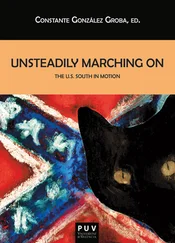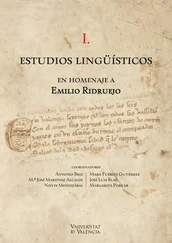EX-CENTRIC SOUTHS
(RE)IMAGINING
SOUTHERN CENTERS AND PERIPHERIES
BIBLIOTECA JAVIER COY D’ESTUDIS NORD-AMERICANS
http://puv.uv.es/biblioteca-javier-coy-destudis-nord-americans.html http://bibliotecajaviercoy.com
DIRECTORAS
Carme Manuel
(Universitat de València)
Elena Ortells
(Universitat Jaume I, Castelló)
EX-CENTRIC SOUTHS
(RE)IMAGINING
SOUTHERN CENTERS AND PERIPHERIES
Urszula Niewiadomska-Flis, ed.
Biblioteca Javier Coy d’estudis nord-americans
Universitat de València
Urszula Niewiadomska-Flis, ed.
Ex-Centric Souths: (Re)Imagining Southern Centers and Peripheries
1ª edición de 2019
Reservados todos los derechos
Prohibida su reproducción total o parcial
ISBN: 978-84-9134-563-3
Ilustración de la cubierta: Aleksander Bednarski
Diseño de la cubierta: Celso Hernández de la Figuera
Publicacions de la Universitat de València
http://puv.uv.es publicacions@uv.es
Edición digital
“[Let’s] reimagine the or a South or multiple Souths to take full measure of the significance of alternative memories, histories, and modes of cultural expression.”
Barbara Ladd
“Literary Studies: The Southern United States, 2005”
Table of Contents
(Re)imagined Souths URSZULA NIEWIADOMSKA-FLIS
PART I TRANSNATIONAL SOUTH: THE CARIBBEAN CONNECTION
Imagining the South Through the Caribbean: Spatial Narratives of Liberty in the Novels of Holcombe and Livermore DENIZ BOZKURT-PEKAR
Migrant Bodies and the Transnational South: Dissecting Colonial Presence in Ana Lydia Vega’s “Encancaranublado” PAULA BARBA GUERRERO
Un-grounding Identity, Re-thinking Connections in Erna Brodber’s Louisiana SOFIA GKERTZOU
PART II TRANSCENDING THE SOUTHERN SENSE OF PLACE
Hot Hot Heat: The U.S. South in Benedict Andrews’s Production of A Streetcar Named Desire JULIA SATTLER
Revisiting Southern Home Places: Insider/Outsider Dialectic in Southern Short Fiction IRINA KUDRIAVTSEVA
A Mythical Interpretation of the Southern Gothic in Cormac McCarthy’s Fiction SZYMON WNUK
Between Radiance and Darkness: The South as Grotesque in The Heart is a Lonely Hunter ELISA CORIA
PART III THE SOUTHERN URGE TO TELL
Revisiting The Heart is a Lonely Hunter : Carson McCullers’s “Ironic Parable of Fascism” CONSTANTE GONZÁLEZ GROBA
“But why?”: Racial Guilt and the Southern Paradox in Willie Morris’s North Toward Home and Lillian Smith’s Killers of the Dream MICHAŁ CHOIŃSKI
The Night of the Hunter : The Storied South on Screen MARIE LIÉNARD-YETERIAN
Advertising the Deep South in 2018: An Analysis of Destination Image Through Louisiana, Mississippi, Alabama and Georgia Travel Guides GIULIANO SANTANGELI VALENZANI
Acknowledgements
Editing Ex-Centric Souths: (Re)Imagining Southern Centers and Peripheries has been a rewarding and challenging experience. Since editing a volume is an intensely collaborative process, I would like to thank the individuals that helped make this happen.
First, I would like to gratefully acknowledge the talented contributors who made Ex-Centric Souths a vehicle for their research interests. Thank you all for graciously addressing all editorial queries with impressive talent and patience.
I would also like to thank the reviewers, who were engaged in reading portions of the book manuscript: Patrycja Antoszek (John Paul II Catholic University of Lublin, Poland), Karolina Majkowska (Maria Curie-Sklodowska University in Lublin, Poland), Jadwiga Maszewska (University of Łódź, Poland), Agnieszka Matysiak (Maria Curie-Sklodowska University in Lublin, Poland), Gerald Preher (Lille Catholic University, France), Elżbieta Rokosz Piejko (University of Rzeszów, Poland), María del Carmen Rueda Ramos (University of Rovira i Virgili, Spain), Gabriel Scala (Delta State University, Mississippi, USA), and Beata Zawadka (University of Szczecin, Poland). A sincere thank you for their constructive criticism and diligent reading of Ex-Centric Souths which helped bring the manuscript to the level of professionalism we should aspire to attain.
And finally, it is my great pleasure to extend thanks to Carme Manuel, of Universitat de València, for her kindness, professionalism, and believing in my research projects.
(Re)imagined Souths
Urszula Niewiadomska-Flis John Paul II Catholic University of Lublin, Poland
The South today is as much a fiction, a story we tell and are told, as it is a fixed geographic space below the Mason Dixon Line.
Tara McPherson, Reconstructing Dixie 1
The South is an imagined community made up of a multiplicity of communities, similarly imagined. Some of these communities are more imagined than others … what all these communities have in common is the act of imagination.
Richard Gray, “Forward: Inventing Communities, Imagining Places” xxiii
In “Southern Distinctiveness, Yet Again, or, Why America Still Needs the South” Larry Griffin asks, “When we talk about ‘the South,’ … which South, exactly, are we talking about?” (62). Griffin’s question implies there is no single, homogenous South. He is not alone in his assumption. There have always been many Souths, overlapping and/or contradicting each other. Yet, the South conjured up in the American imagination is more often than not depicted, for better or for worse, as an exceptional, peculiar region. The South is imagined in multiple ways. Sometimes it takes a meandering journey through external terrains, revisited places and themes, or new narratives to find the South one is looking for. This book hopes to add a modest voice in ongoing attempts to chart new routes and to decenter the South in many ways in the hope of exploring Southern identity and multiple Souths.
The first remapping, to use Robert Brinkmeyer’s phrase, 1 concerns the time-honored binaries (such as the South/North dyad) which have been challenged and dismantled. Scholars have opened the South up to themes going beyond the U.S. and embracing more international, hemispheric and global perspectives. The New Southern Studies came into being as a challenge to celebrating Southern exceptionalism and distinctive southern cultural identity within U.S. nationalistic historiography. 2 Hence a contemporary discourse of Southern studies expands “to absorb several ‘new’ discourses: memory and trauma studies and a new geography spurred by interest in globalization being the most prominent” (Kreyling, “Toward” 4). This trend towards deconstructing the South’s repressed guilt, mythmaking, and other regional fantasies – but also towards viewing the South transnationally – is present not only in literary humanities, but also in social sciences, cultural studies, and historical research.
Since the South’s center of gravity is shifting from the local to the global, the New Southern Studies also ushered in discussions which sought larger connections, and went beyond local issues of race, ethnicity and gender. After all, W.E.B. Du Bois identified relation of the civilized (white) world to the oppressed races as the social problem of the twentieth century, he would claim that “the color line belts the world” (42). Analyzing the South through the prism of a larger population of the colonized and oppressed pushes the boundaries of Southern studies and opens the Southern canon to include literatures of the Global South. Smith explains that “the U.S. South is tied tightly to postplantation cultures throughout the New World, and, with appropriate qualification, throughout much of the Third World or global south” (“Hot Bodies” 104). The second (re)imagining of the South might involve another critical look at the elements of regional differences. Despite scholarly attempts to prove that the South has never been an exceptional region 3 or that the South is disappearing, 4 in times when regionalism is much maligned because of its connotations with parochialism, the South is doing more than just fine. 5 Elements of often mythologized Southern exceptionalism, such as a sense of place, storytelling and paternalistic honor, still receive critical attention, this time through the prism of comparative studies of the U.S. South. Still another approach in (re)imagining the South is to revisit canonical Southern texts from a new perspective. Reevaluations of established texts with new critical lenses broaden their impact and offer more analytical potential in comparative studies. And finally, looking at the ways the South is narrated through the texts of popular culture might reconceptualize Southern studies.
Читать дальше
